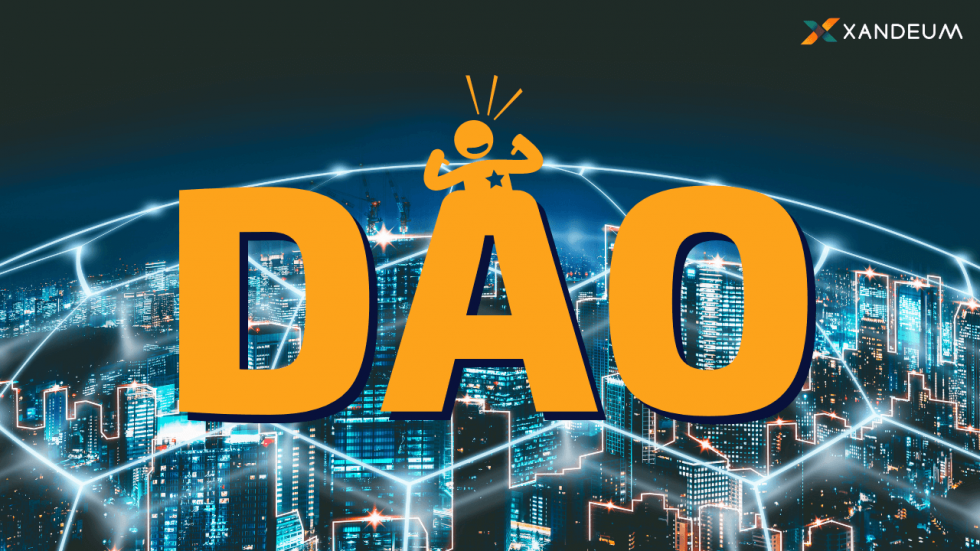Decoding DAOs: Your Essential Guide
Explore the World of Distributed Autonomous Organizations (DAOs) in Crypto

Navigating the Blockchain Storage Landscape
In the ever-evolving landscape of cryptocurrency and blockchain technology, new concepts and structures continue to emerge, shaping the way we perceive and interact with digital assets.
One such concept that has gained significant traction in recent years is the Decentralized Autonomous Organization or DAO for short. In this blog post, we’ll delve into what exactly a DAO is, why it exists, how you can make use of it, and the nuances between various DAO tokens.
Understanding the Concept of DAO
Let’s start with the basics. What is an organization? Traditionally, an organization refers to a group of individuals united by a common goal, whether it’s a for-profit company, a non-profit entity, or any collective endeavor. In a conventional organization, decisions are typically made by humans, with ownership and management structures in place.
Now, enter the DAO – a Decentralized Autonomous Organization. The term “autonomous” is key here. Unlike traditional organizations, DAOs operate without the need for direct human intervention once they’re set in motion. They are governed by smart contracts and code, effectively running on autopilot.
Think of it as a digital entity with a life of its own, akin to a robotic system executing predefined tasks.
The Functionality of DAOs
DAOs can serve various purposes, from managing decentralized exchanges (DEXs) to governing blockchain protocols.
For example, platforms like Orca on Solana operate as DAOs, facilitating decentralized trading without centralized control. Within these DAOs, participants hold DAO tokens, which grant them voting rights and, in some cases, ownership stakes in the project.
DAO Tokens: Ownership and Governance
DAO tokens are integral to the functioning of DAOs. They represent a stake in the organization, providing holders with voting power to influence decisions regarding the project’s direction, development, and resource allocation. Each DAO token is unique, and tied to a specific project or platform.
Similar to owning shares in a company, holding DAO tokens comes with rights and responsibilities within the DAO ecosystem.
The Role of Governance
Governance within DAOs is a democratic process facilitated by token holders. Proposals for changes or improvements to the project are put forth, and token holders vote on these proposals.
This decentralized decision-making ensures that no single entity controls the fate of the organization, fostering transparency and community involvement.
DAO Councils: Balancing Decentralization and Management
While DAOs operate autonomously, they may still require some form of human oversight. This is where DAO councils come into play.
Comprising individuals elected or appointed by the community, DAO councils handle day-to-day operations, strategic planning, and budget management. They act as a bridge between the decentralized network of token holders and the practical realities of running the organization.
Case Study: Xandeum DAO
As an example, let’s consider the Xandeum DAO. Xandeum aims to provide a storage layer for smart contracts, enhancing the functionality and security of blockchain applications while making true Web3 possible.
In the Xandeum ecosystem, holders of Xandeum Nodes receive DAO tokens, granting them voting rights and influence over project decisions via the Realms DAO application. The DAO council and team members oversee the project’s development and governance in the early days.
This is necessary to ensure the success of the project, until it can be fully governed by the DAO entirely, standing firmly on its feet, ready to conquer the world.
Conclusion
In summary, DAOs represent a paradigm shift in organizational dynamics, leveraging blockchain technology to create decentralized, autonomous entities.
Through DAO tokens and governance structures, participants become active contributors to the projects they support, shaping their trajectory and evolution. As the crypto space continues to evolve, DAOs are poised to play a central role in driving innovation and fostering community collaboration.
So, whether you’re a seasoned crypto enthusiast or just beginning to explore the possibilities of decentralized finance, understanding DAOs is essential in navigating the ever-changing landscape of blockchain technology.

